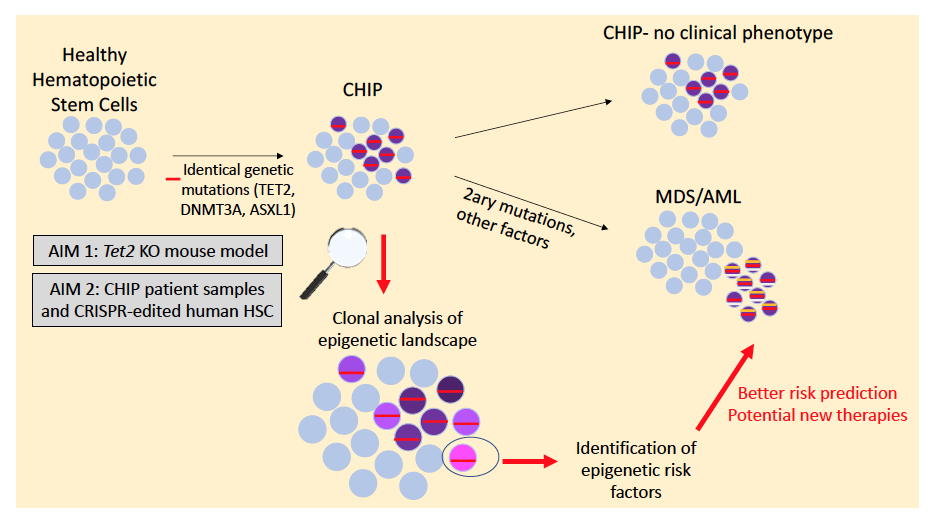
Researcher Profiles

David T. Scadden, M.D.
Massachusetts General Hospital
2021 Funding recipient
Identification of epigenetic marks predictive of CHIP progression into MDS/AML
Discovery Research Grant 2021
PROJECT SUMMARY
Blood stem cells are the gatekeepers of blood production: they are extremely long lived and upon differentiation can give rise to all types of mature cells, including white blood cells, red blood cells, and platelets. While people age, their blood stem cells are more easily damaged and acquire mutations in their DNA. This is a very common process that occurs in >10% of all individuals over 65 years of age. If these mutations confer a growth advantage to blood stem cells the mutated cells become overabundant in a process called Clonal Hematopoiesis of Indetermined Potential (CHIP). People with CHIP are clinically healthy, but have an increased risk of developing blood diseases, such as myelodysplastic syndromes (blood stem cells fail to make enough healthy blood) or acute myeloid leukemia (a type of blood cancer where malignant cells fill the bone marrow and interfere with the body’s normal blood cell production) and cardiovascular disease. Currently, it is not known why some mutated blood stem cells become tumorigenic and why some remain fully functional. There are multiple molecular layers that define the identity and the functionality of each stem cell: while all the cells share the same DNA sequence, they differ in the epigenome that governs what portions of the DNA are active or silenced. Preliminary experiments by us revealed that there are some markers in the epigenome that predict whether a CHIP mutation will provide a competitive advantage or not. This is not due to the mutation itself. Rather, the mutation is ‘interpreted’ through the epigenome and some cells have an epigenome that predisposes the cell to overgrowth. The aim of this proposal is to extend these studies to test the effects of the epigenome in i) mouse bone marrow transplantation studies of mutated stem cells or ii) in human bone marrow samples. We will molecularly analyze single cells to validate the causal connection of the epigenetic markers with the outgrowth and transformation of blood stem cells. If successful, this work will provide insight into how CHIP mutations can lead to diverse outcomes providing potential therapeutic targets. In addition, it may lead to a molecular signature signifying increased risk. This may then be tested as a prognostic indicator for patients.

